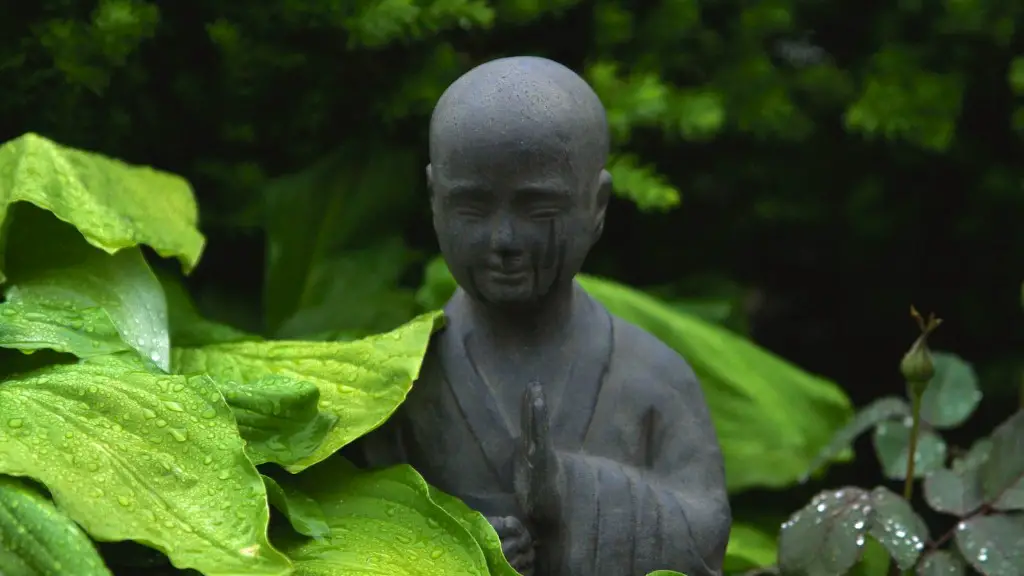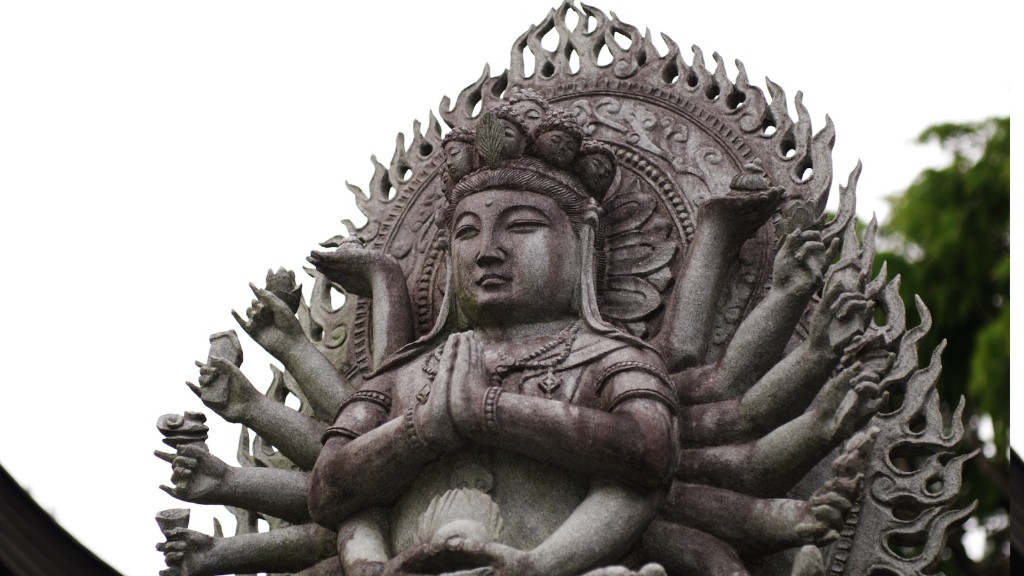Buddhism teaches that all beings are interconnected and interdependent. All beings have the same Buddha nature, and are equal. Buddhism also teaches that attachment to things leads to suffering. The way to end suffering is to detach from things, and to live in the present moment.
Buddhism teaches that all beings have the potential to awaken from the cycle of birth and death. Through ethical conduct, meditation, and wisdom, we can achieve liberation from suffering. The ultimate goal is to attain nirvana, a state of complete peace and freedom.
What are the main Buddhist teachings?
The Four Noble Truths are the cornerstone of the Buddha’s teachings. They are the truth of suffering, the truth of the cause of suffering, the truth of the end of suffering, and the truth of the path that leads to the end of suffering.
The truth of suffering is that life is full of suffering. This suffering can take many forms, such as physical pain, mental anguish, or the suffering of loss. The truth of the cause of suffering is that it is caused by our own desires and attachments. We suffer because we want things that we cannot have, or because we cling to things that we have but are not truly satisfied with. The truth of the end of suffering is that it is possible to end our suffering by freeing ourselves from our desires and attachments. The truth of the path is that the path to the end of suffering is the Noble Eightfold Path, which consists of right understanding, right thought, right speech, right action, right livelihood, right effort, right mindfulness, and right concentration.
Buddhism is a religion that is based on the teachings of Siddhartha Gautama. The main principles of this belief system are karma, rebirth, and impermanence. Karma is the belief that a person’s actions in this life determine their fate in future lives. Rebirth is the belief that after a person dies, they are reborn into another body. Impermanence is the belief that everything in life is temporary and will eventually come to an end.
What does Buddhism teach about life
Buddhism is a religion that encourages its people to avoid self-indulgence but also self-denial. Buddha’s most important teachings, known as The Four Noble Truths, are essential to understanding the religion. Buddhists embrace the concepts of karma (the law of cause and effect) and reincarnation (the continuous cycle of rebirth).
1. The Four Noble Truths: Buddha taught that life is suffering, that suffering is caused by desire and attachment, that suffering can be ended by eliminating desire and attachment, and that the path to eliminating suffering is the Eightfold Path.
2. The Eightfold Path: This path includes right understanding, right thought, right speech, right action, right livelihood, right effort, right mindfulness, and right concentration.
3. The Three Universal Truths: These truths are that everything is impermanent, that everything is interconnected, and that there is no permanent self or soul.
4. The Law of Karma: This law states that our actions have consequences, and that our future lives will be determined by the actions we take in this life.
5. The Middle Way: Buddha taught that the path to enlightenment is found by avoiding extremes of self-indulgence and self-mortification.
6. The Four Noble Virtues: These virtues are wisdom, compassion, ethics, and perseverance.
7. The Five Precepts: These precepts are to refrain from harming living beings, to refrain from taking what is not given, to refrain from sexual misconduct, to refrain from lying, and to refrain from taking
Do Buddhist believe in God?
Buddhists do not believe in any kind of deity or god, although there are supernatural figures who can help or hinder people on the path towards enlightenment. The buddhist path is one of self-reliance and inner strength, and so buddhists rely on their own efforts to achieve enlightenment. However, some buddhists may pray to or worship supernatural figures as a way of showing respect or as a way of asking for help on the path to enlightenment.
The Five Precepts are basic guidelines for living a moral and ethical life. They are:
1. Refrain from taking life – Not killing any living being.
2. Refrain from taking what is not given – Not stealing from anyone.
3. Refrain from the misuse of the senses – Not having too much sensual pleasure.
4. Refrain from wrong speech – Not speaking lies or hurtful words.
5. Refrain from intoxicants that cloud the mind – Not using drugs or alcohol.
following these precepts can help us to live a more peaceful and harmonious life.
Can Buddhists drink alcohol?
Buddhism teaches that drinking or using other kinds of drugs can cause carelessness and should be avoided. Strong Buddhist beliefs would have a significant impact on alcohol use, and would likely lead to avoiding alcohol altogether.
The Buddha’s quote illustrates the Golden Rule perfectly – do unto others as you would have them do unto you. If you don’t want to be hurt, don’t hurt others. It’s that simple. Unfortunately, people often forget this simple rule and end up hurting others, whether it’s intentional or not. If we could all remember to treat others the way we want to be treated, the world would be a much better place.
What is Buddhism vs Christianity
There are a few key differences between Buddhism and Christianity that are worth noting. For one, Christianity is monotheistic and relies heavily on the idea of a God who created the world and sets forth certain divine values. On the other hand, Buddhism is generally non-theistic, meaning that it does not subscribe to the belief in a god or creator deity. Additionally, Buddhism emphasizes personal spiritual growth and development, whereas Christianity often focuses on following the teachings of Jesus Christ and adhering to rules and regulations set forth by the church. Ultimately, both religions offer unique perspectives on the meaning of life and provide different paths for achieving spiritual enlightenment.
In Buddhism, there is no concept of punishment or reward. There is no divine being who decides who goes to hell or heaven. There is merely the illusory results of our thought, words and deeds, which we call karma.
Do Buddhists believe in afterlife?
From a Buddhist perspective, life and death are not separate entities but part of a continuous cycle. Consciousness (the spirit) is believed to continue after death and may be reborn. Death is therefore seen as an opportunity for liberation from the cycle of life, death and rebirth.
Nirvana is the goal of Buddhism and is believed to be attained only by eliminating all greed, hatred and ignorance within a person. This would end the cycle of death and rebirth. Nirvana is a state of perfect peace and bliss.
What are the 7 rules of Buddhism
Buddha’s 7 Rules of Happiness are:
1. Clear Viewpoint: Don’t just believe anything just because you saw it or you heard it.
2. Values: We end up digging a hole so deep that it is hard for us to find a way back home.
3. Words that Inspire: Actions in Positive Direction.
4. Efforts with Impact: Be Mindful.
5. Concentrate Right: Make an effort to really understand what is happening.
6. Detach: Sometimes it is necessary to let go of things in order to move forward.
7. Be present: Happiness is always available in the present moment.
The Buddha never said anything negative about true love. On the contrary, he saw it as a source of immense happiness and peace. If you are able to cultivate a deep and pure love, it will naturally lead to increased states of loving kindness and compassion. Over time, your love will become all-encompassing and will touch everyone around you.
How to live a good life in Buddhism?
In Buddhist teachings, equanimity, or peace of mind, is achieved by detaching oneself from the cycle of craving that produces dukkha. So by achieving a mental state where you can detach from all the passions, needs and wants of life, you free yourself and achieve a state of transcendent bliss and well-being.
Buddhism, like Jainism, is a religion that does not believe in a creator god. The Buddha himself rejected the idea of a god, and Buddhist philosophers have even argued that belief in an eternal god is nothing but a distraction for humans seeking enlightenment. However, Buddhism does not necessarily require its followers to be atheists. Many Buddhists believe in reincarnation, and some Buddhists even worship the Buddha himself as a deity.
What do Buddhists pray for
When we pray to buddhas, bodhisattvas, and spiritual masters, we are asking for their help in invoking the enlightened qualities of our own heart and mind. By letting go of the ego’s resistance to humility, we open ourselves up to the possibility of transforming our lives for the better.
Karma is a core concept in Buddhism that refers to the law of cause and effect. According to this law, good actions lead to good outcomes, while bad actions lead to bad outcomes. This principle applies not only to this life, but also to future lives. So, if a person has done bad deeds in a previous life, they may suffer the consequences of those actions in their next life. Even an enlightened being is not exempt from the effects of past karma.
Final Words
Buddhism teaches that all beings have the potential to achieve enlightenment. The path to enlightenment is through the practice of the Eightfold Path, which includes right understanding, right thought, right speech, right action, right livelihood, right effort, right mindfulness, and right concentration.
There is no one answer to this question as Buddhism is a complex religion with many different sects and interpretations. However, some common themes in Buddhist teaching include the Four Noble Truths (which deal with the nature of suffering and how to overcome it), the Noble Eightfold Path (a guide to living a ethical and virtuous life), and the importance of mindfulness and compassion.




